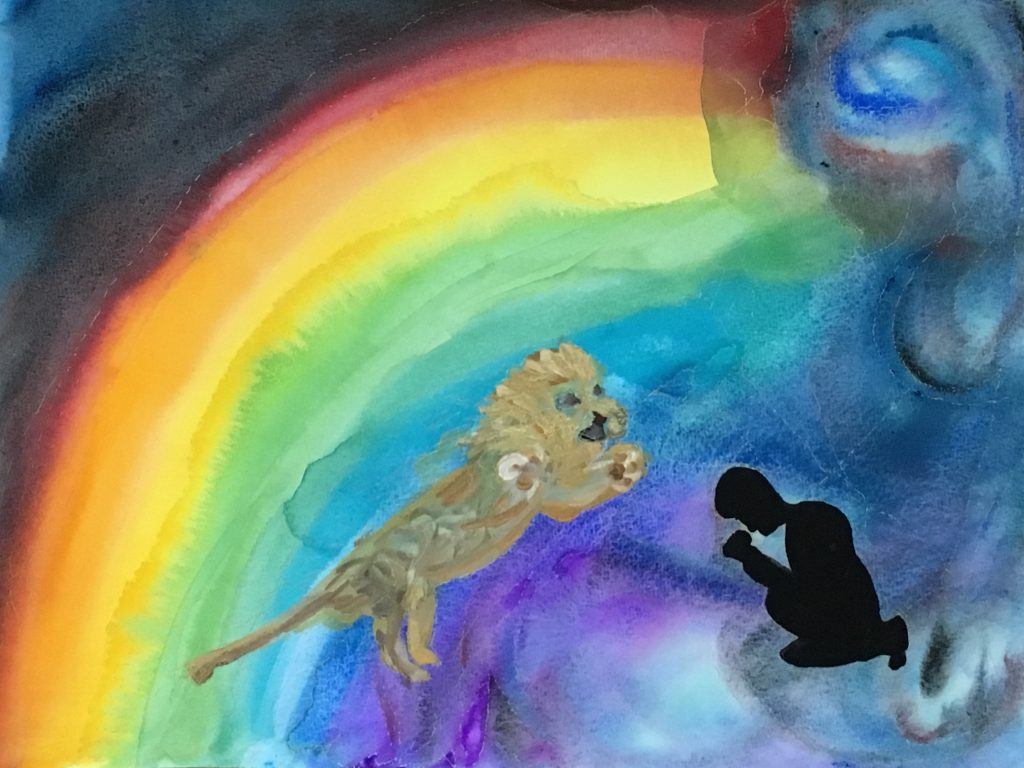This is probably going to be the first poem in an illustrated series on future war crimes trials imagined to be taking place in Nuremberg in 2027. Some of the work I’ve recently blogged, like “Where’s Olaf?“, fits later in the same series.
“The Long Arc Breaks,” gouache and ink on 36 x 48 cm.
“[N]ach Auschwitz ein Gedicht zu schreiben, ist barbarisch…” —Theodor Adorno
“I thought he supp’sed to be the all-lovin./The same God who let Hitler put the Jews in the ovens?”—Dead Prez, “Propaganda”
Our Father who art in heaven,
hallowed be thy name.
Although time is said to lessen
pain, war crimes make enduring shame.
Thy kingdom come.
Thine will be done
on earth as it is in heaven.
Was it 30,000 at Dachau? Reckon
with the uncertainty:
God knows, but not you or me.
Give us this day our daily bread,
and forgive us our trespasses,
as we forgive those who trespass against us.
You’re either with or against us,
the President said.
Two hundred thousand wound up dead.
Iraqis—so they get free passes,
whose lies and insistence sped
the world to war?
And what for?
And lead us not into temptation,
but deliver us from evil.
What should be the shame of a nation—
a war of aggression, torture, rendition—
barely leads to upheaval,
while the powers that be
are still the powers that were.
Four hundred thousand dead Syrians,
and you voted for her?
What rule of law used to mean is a blur.
For thine is the kingdom,
and the power, and the glory,
for ever and ever.
Amen.
War criminals’ kingdom
is the whole church and state.
They’re teaching the story
of “we had to”—prostrate
to whichever interest is paying.
Now and then,
one can see straight
through to where the long arc
of history has bent, is bending, breaks
the unbending loyalty of the clan.
Justice has coaxed the wild animal of man
into pawing two feet up to stand, roaring in the dark:
I am your own voice crying in the wilderness
I am your only choice.
In the moment it takes
to cry out, all the world is praying.
It is a hopeful thing, how we wish
for someone more powerful than this,
more just than us.
Though many have died thus.
